
Victoria Freire has a degree in History and is an expert in Cultural management. What is more, she has a Diploma in Audiovisual Performing. Nevertheless, she sees herself as an actress above all. Consequentially, she has been involved in theate, cinema and television throughout her life. Meanwhile, she has continued to train in order to give her career an international edge.
She is currently living in New York, mastering her English. In ‘Revisa Actores’, we are fortunate to count on her as a correspondent in the United States. We talk to her about the differences between life on one side of the pond to the other, her international experience, her new projects and much more.
How did it all begin? What are you proudest about?
Well, back at school, I did some theatre workshops and I signed up for anything to get up on a stage. You could say an early calling. No a very early one! I spent my days singing and dancing.
I studied piano and classic ballet for many years. Later on, I started Musical theatre at the ESAD (School for Dramatic Arts). What is more, I combined this with a dgree in History, which was a deal I made with my parents who were not keen on the idea of acting, of course….
When I arrived in Madrid, I studied with Ángel Gutiérrez in the Cámera theatre for several years. I would say he was my real mentor. He encouraged me and believed in me at all times. It is a gift to meet people who love this profession above all else and who transmit that love for the art.
On finishing university, I began a doctorate but, my first cinema role materialised and, obviously, I had to choose. The film was “Un Banco en el Parque” (A Park Bench). I have to say that all the work I have done has been an opportunity to do what I most enjoy, which is acting, be it cinema, theatre or on the television. But, some projects have given me even more than that for various reasons. The filming of this first one was a special, unexpected gift for me and I remember it particularly fondly. I had done theatre but I had no idea about the process of making a film and I worked closely with marvellous people from whom I learned a lot. They were the director Agustí Vilá and colleagues such as Alex Brendemühl and Aitor Merino. It is a different kind of film, avant-garde. It was a blessing to be involved in the project. It was both hard and sad to close the book on that character. I learned a lot from her and doing the film helped me develop.
I also affectionately remember a ‘Estudio 1’ (Theatre on television) I did with Fernando Méndez-Leite. It was amazing to work with him, Fiorella Faltoiano, Isabel Ordaz,Juan Luis Galiardo and Jesús Bonilla. I was unaware of the format of theatre for television and it was fascinating to learn this way of working.
You could say that I become very close to all the characters I create and I always give them a part of me. When I finish the project, I always go through a rough patch leaving the characters behind. That is par for course in the profession. This is also what drives me and hooks me to this job and what keeps me ticking, the constant search and change.
Actress, cultural manager, press officer: How do you combine all your professional angles?
I am a very active and inquisitive person and I love trying out new things. The idea of generating my own projects and finding out about the way the profession works has fascinated me for a long time. For this, I did a Master in Cultural Management to learn the ropes of this field which I am so keen on. I like it so much because it gives me independence and I can work on projects from both sides and I can get involved in other projects not only as an actress but also as a manager or producer.
But above all else, what I get most out of is acting, being an actress is my true calling. Whenever a project arises, I get excited and jump in at the deep end. There is nothing quite like it.
This profession demands a lot of sacrifice, not only what you can see. There are many hours of work which peple are unaware of. Is it worth it? Is being an actress just a profession or a passion?
As you said, it is a very sacrificial profession. It requires you to renounce many things. It is very hard to live off and few manage to. In the end, people only value what you have achieved, the visible part of success. There are those who are well-trained and enormously talented but never break though. All there paths there and the energy and sacrifices they have made to get there can be appreciated by nobody.
On the other hand, there is a lack of social comprehension regarding artistic vocations in general. Not only that referring to actors. But, when a person has and feels the need to create, they are put into doubt. It is logical because of the difficulty in making a living in this profession. However, what I think causes most anxiety is the lack of understanding of the need. We live in a society of “you are what you are worth”. At times, it is a fight against windmills.
The question of it being worth it is one I cannot answer. It depends on each person’s life and how they want to manage it. There is nothing like acting for me and nothing makes me as happy and alive as when I work in the theme. Perhaps everything has its time in life and you can decide to leave this job if your priorities change. I do, nevertheless, believe that the ‘need’ would never go away. Therefore, I do think it is a question of passion. When you can work in this field, there is nothing which comes close. It is absolutely worth it for me and I think people should chase their dreams above and beyond all else.
You have always bet on the international market. Is it tough?
It is a different way, a more complex one. You have to adapt to ways of working which differ from those you are used to. This can be extremely frustrating at first because we evidently do not think or move in the same way culturally and professionally.
There is also the language barrier when you are not working in Spanish. However well you speak another language, it is difficult to get used to the sentiment and rhythm when working in a second language. Initially, it feels distant from you because your language is part of your identity. Like in everything else, it is a matter of practice and interest.
What I think is that you should never close doors. This field of work moves from one project to the next. Sometimes these are abroad and they give you the chance to experience and work in other countriesif that is what you want to do. Especially now, in the current professional climate.
It is not an easy path to follow, of course, but it is an interesting challenge.
What is a girl like you doing in a city like New York?
Recently I have been hopping between London and Madrid, doing courses and auditions in both places. But, last year I came to New York where I have lots of friends and I fell in love with the city. I had always wanted to come to the city despite it seeming so far away. In the end it is just an eight-hour flight away but a load of paperwork, too.
In the end I decided ot come for some time. I needed to perfect my English. I have landed here, learning, doing courses and enjoying this marvellous city and keeping an eye on what is going on in the artistic and cutlural worlds around here. It is a very lively and creative city with an incredible beating heart.
You have become the first correspondent for the magazine “Revista Actores en Estados Unidos”. What are you going to surprise us with and what will be your mission?
I have always liked working in the press. There is a lot happening in Spanish culture over here: In Casas de Cultura, Spanish Consulate, Cervantes Institute and theatres.
There are increasingly more Spanish artists and people get together to create projects and combine their energy as in the case of AENY. I would love to keep my colleagues up to date with what is going on here both on an artistic and cultural level. I reckon it is a great way to encourage people to get to know all this in a more direct way while, at the same time, opening a channel of information for those daring to catch a glipse of this amazing city from an artistic and cultural point of view.
There are many Spanish actors who would like to work in the USA. What would you recommend? Is it easy or are there lots of ‘urban legends’?
Based on my experience here and what many Spaniards who have been living here for some time have said, the process for getting the work visa is tedious and complicated. This is not an urban legend. Then there is the matter of the language, the accent. There are many obstacles which complicate the process but do not halt it.
However, I feel everyone should do what they want to. If you want to come here. You should do it and try your best. There are no examples or pieces of advice I can give because everyone’s case is different. There are endless factors.
I clearly encourage people to come over and make a go of it if it is what they aspire to. You never know how it could have gone if you have never tried to do it.
Do you think the crisis in Spain, with a minimal level of audiovisual productions and the high cultural tax rate, has driven people to look for new opportunities abroad?
Undoubtedly. Last year there were more requests for Artistic Visas in the USA than at any other time in history. Not only here, more and more of my colleagues emigrate to London, Colombia, Mexico and Argentina. This is what happens when a country does not appreciate culture as an asset, which should be protected and looked after but something that is an unnecessary expense.
It is a pity that the politicians do not value the cultural partimony we are losing and which will not be recovered for quite some time. Without mentioning the countless projects and dreams which fall by the wayside because of the lack of means and support.
What do you think about the work of the new team at the Actors Union?
I think they are making considerable progress in the materials for the protection of workers’ rights in the industry. At these times of crisis and change, we need more than ever that the union is active and supports us, which I believe it is doing well.
It is also coherent that the union fights on all the platforms which are being created to fight for equality, culture and historical memory. It is a show of respect and integrity on behalf of all artists and as huiman beings aware of the society we are part of.
What are the main differences between the Spanish and American markets?
Well, I would say it is quite obvious that the American industry is powerfully structured. It is a real business, with all that it entails.
In Spain, we do not have that concept of industry and much less so now. The consequences of this are even more evident now that we are a nuisance and an expense.
To cite an example, in New York City, the producers pay less tax if they film here since years ago because they realise that cinema boosts the economy and it is publicity for the city.
How do you see your professional future?
Let’s see. I am in a good place professionally speaking despite the bad situation. I have lots of ongoing projects as an actress and as a producer, which is great because that keeps me active and motivated.
As you know the future in this profession is not controllable. Sometimes things work out, other times they don’t. We all live in the same uncertainty. What is clear is that if you go out and look for things and want to make progress in this field, opportunities appear. So, never give up.
Is it worth betting everything on your passion?
At the moment, there is nothing I like as much in life than acting. I have no doubts that I want to keep on in this profession which is so beautiful yet complicated as long as I feel the desire to do so. That is definitely passion.
Source: Revista de la Unión de Actores
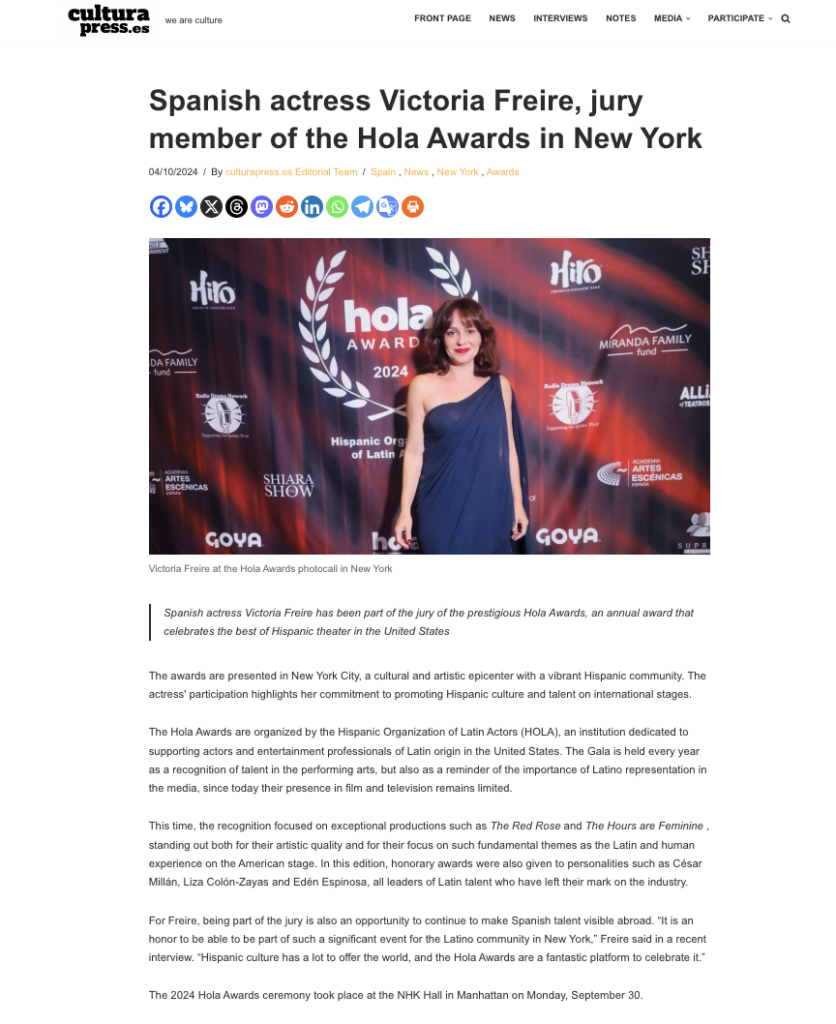
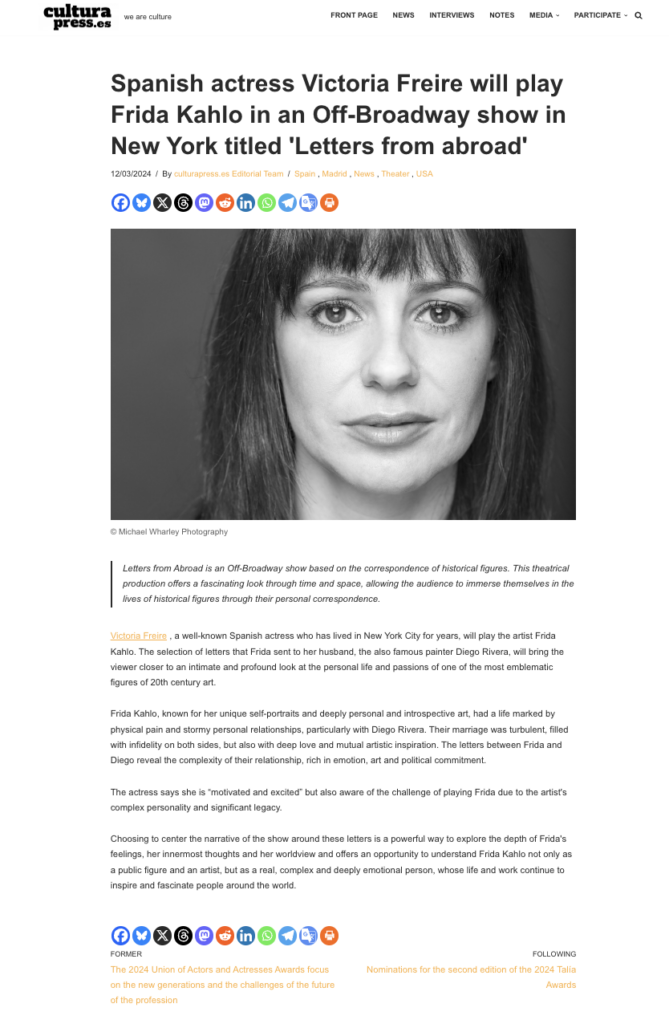
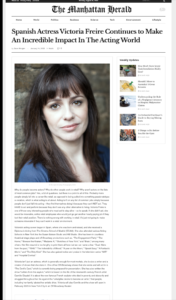
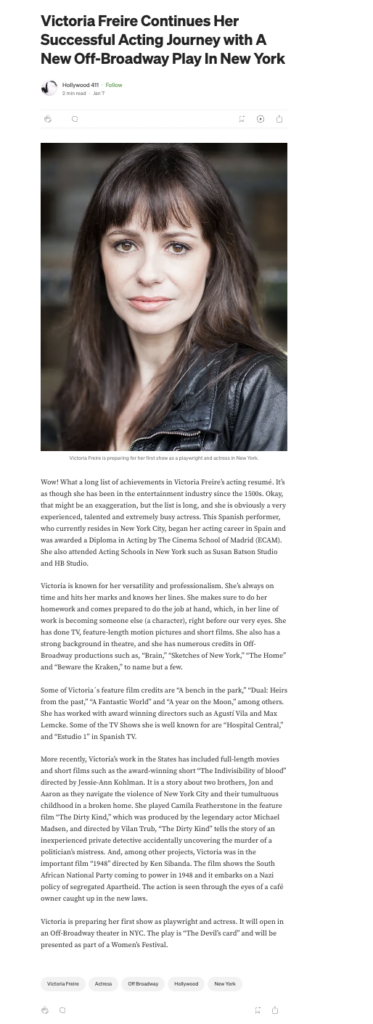
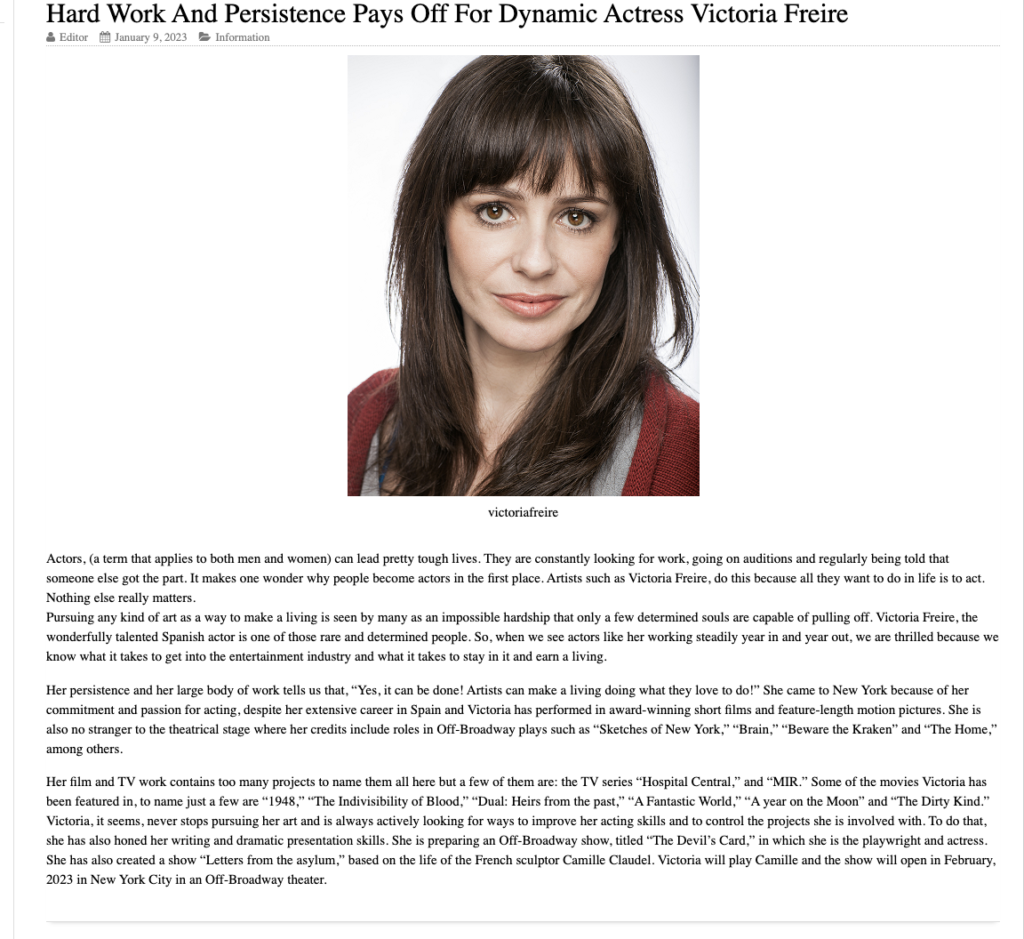
 Neo 2
Neo 2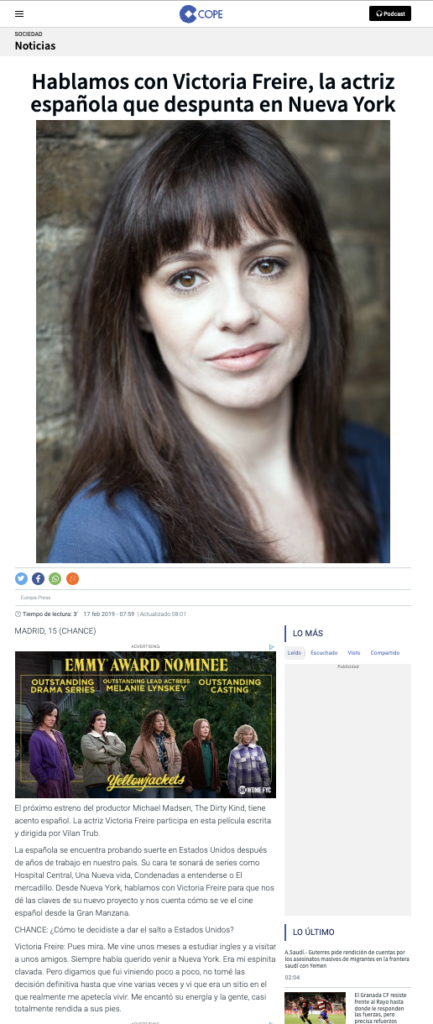 EUROPA PRESS
EUROPA PRESS
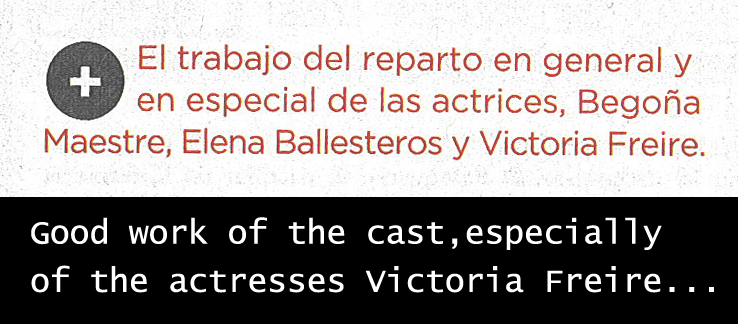
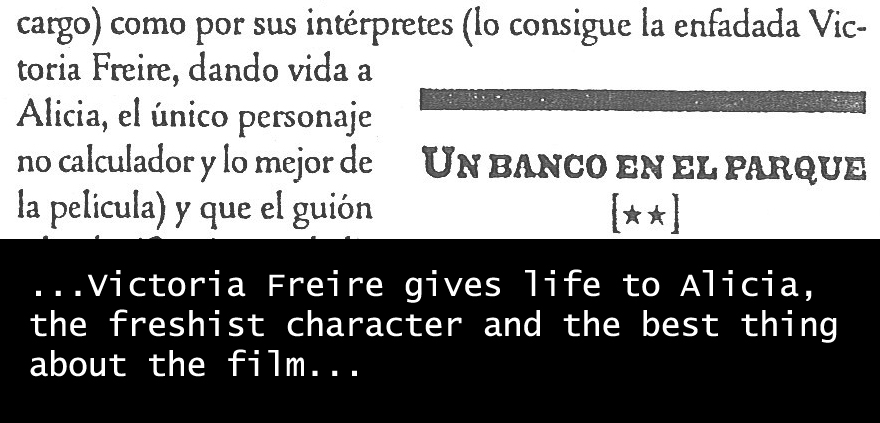

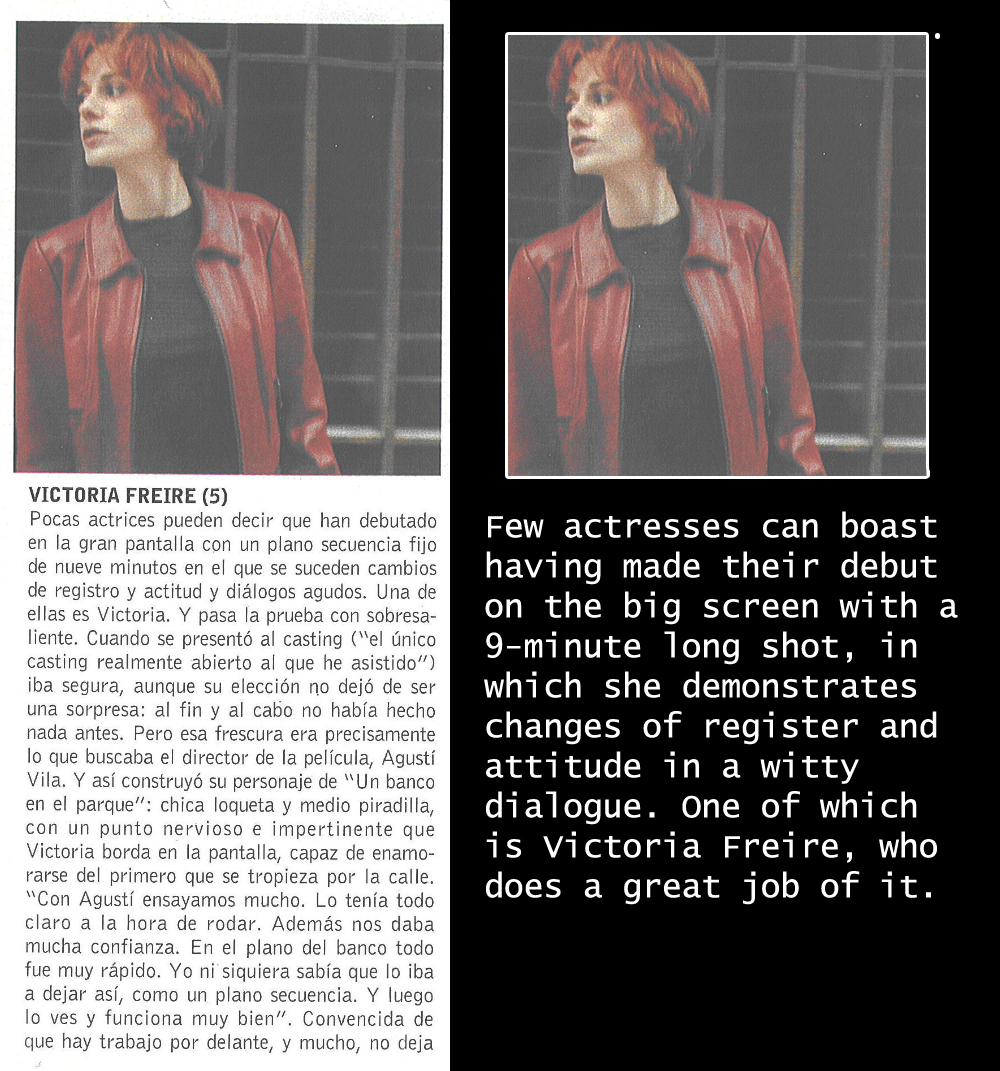
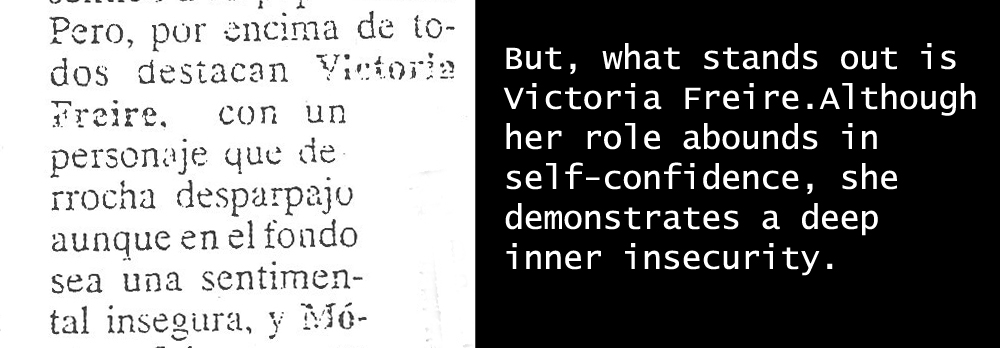
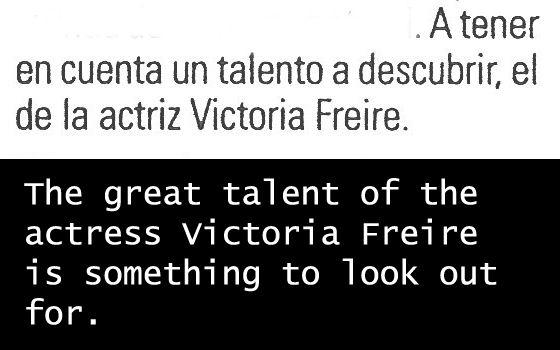

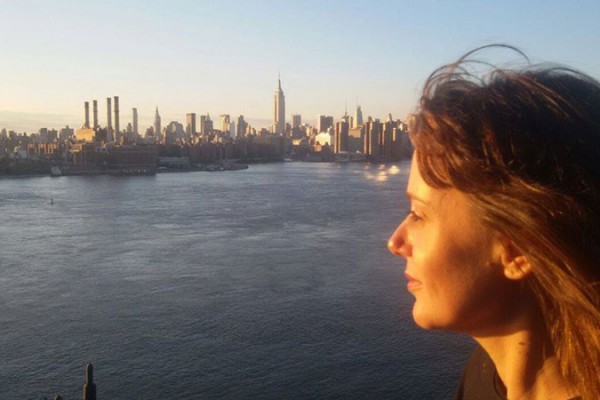

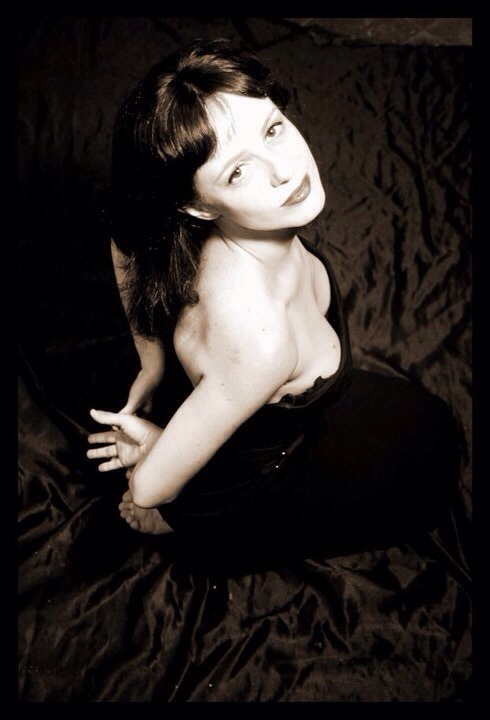



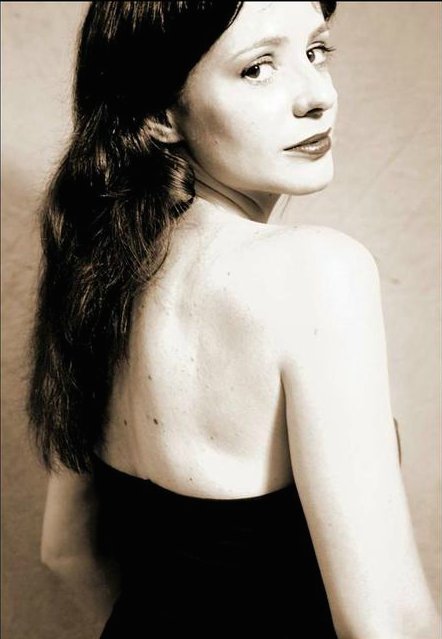
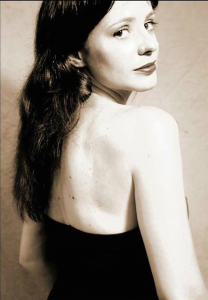 Good grief! Given the choice, I deeply admire Ken Loach, Michael Haneke, Woody Allen and Almodóvar…
Good grief! Given the choice, I deeply admire Ken Loach, Michael Haneke, Woody Allen and Almodóvar…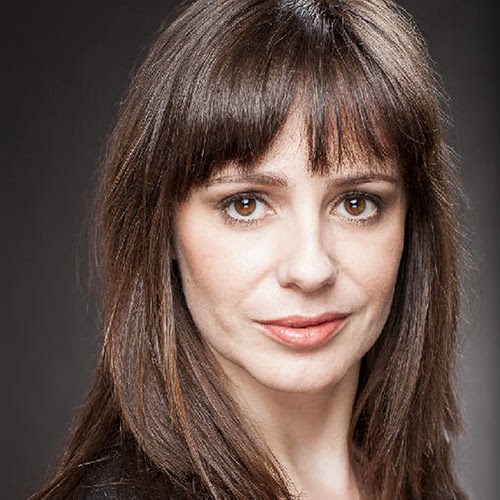

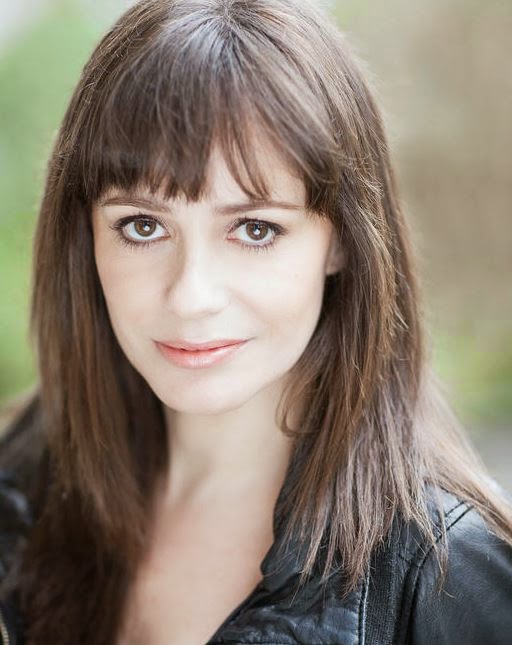
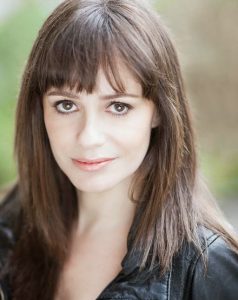
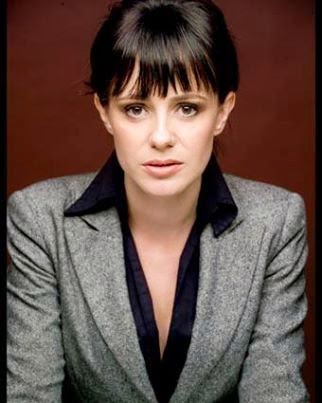
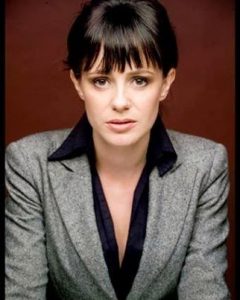
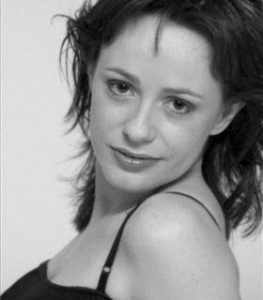 I have learned from many of them. I have been lucky enough to work with people who give their all to the profession and are generous with their co-stars, such as Alex Brendemühl and Agustí Vila, the actor and director who I worked with in “Un Banco en el Parque” (A Park Bench), as I have already mentioned as my first role. I had a great time and learned what it is to work in a team, with a group of people empassioned in their work, treating it with the great care and respect which it deserves. Fernado Méndez-Leite gave me my break in television with Estudio 1. It was here that I first worked in a style it ws not acquainted with, televised theatre, in which the keys of comedy in front of the camera are different. It was Fernándo and my colleagues Fiorella Faltoiano, Jose Luis Galiardo y Jesús Bonilla who taught me what to depend on and they gave me a hand I will never forget with their extensive experience know-how and generosity.
I have learned from many of them. I have been lucky enough to work with people who give their all to the profession and are generous with their co-stars, such as Alex Brendemühl and Agustí Vila, the actor and director who I worked with in “Un Banco en el Parque” (A Park Bench), as I have already mentioned as my first role. I had a great time and learned what it is to work in a team, with a group of people empassioned in their work, treating it with the great care and respect which it deserves. Fernado Méndez-Leite gave me my break in television with Estudio 1. It was here that I first worked in a style it ws not acquainted with, televised theatre, in which the keys of comedy in front of the camera are different. It was Fernándo and my colleagues Fiorella Faltoiano, Jose Luis Galiardo y Jesús Bonilla who taught me what to depend on and they gave me a hand I will never forget with their extensive experience know-how and generosity.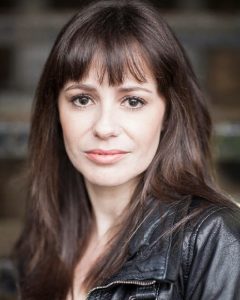 DETEATRO: The history of the theatre is filled with marvellous female characters like Fedra, Antígona, Medea, Celestina, and many more. Which of these would you most like to play?
DETEATRO: The history of the theatre is filled with marvellous female characters like Fedra, Antígona, Medea, Celestina, and many more. Which of these would you most like to play?